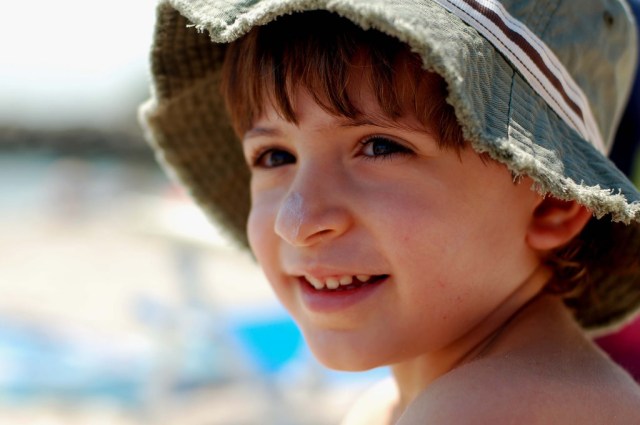Spring has arrived and summer is just around the corner, which means kids will be spending more time out in the sun. Now is the perfect time to restock your sunscreen stash, but before you go on that Target run, the question remains: is spray sunscreen safe for kids?
Every parent that has spent even a minute trying to rub sunscreen onto a squirmy toddler can see the value in spray sunscreen. It’s fast and easy, but is it really the best choice? Not always. Some sunscreen is better than none, but according to experts, when given the choice parents should opt for using lotion rather than aerosol sprays.
photo: bryan via Flickr
“A spray can seem really convenient because you can just spray and off you go,” Dr. Jean Moorjani, a pediatrician at Orlando Health’s Arnold Palmer Hospital For Children told POPSUGAR. “The tricky thing about the spray is the way it’s made. Aerosol versions are going to be thinner than lotion, so you don’t really know how much sun protection your child is getting because a lot of these sprays have to be administered all over. They’re known to miss spots, even though it seems like they get everything.”
There is also the chance that kids can end up inhaling the aerosol spray. The U.S. Food & Drug Administration recommends avoiding spraying sunscreen near the face. Dr. Albert Yan, a pediatric dermatologist at Children’s Hospital of Philadelphia and chair of the American Academy of Pediatrics Section of Pediatric Dermatology says the best method is to spray the sunscreen in your hand and then rub it onto the skin.
The other problem with sprays is that people often don’t apply enough. The American Academy of Dermatology advises one ounce per use, which means a six-ounce bottle of spray sunscreen contains only six applications for one adult. As a general rule of thumb you should be able to see the sunscreen on your skin to know that you’re using enough.
When shopping for a sunscreen it’s also important to purchase one that offers the right type of protection. The AAD advises shoppers to look for labels marked “broad spectrum” and “water resistant” and to opt for sunscreens with an SPF rating of 30 or higher.
—Shahrzad Warkentin
RELATED STORIES
13 Sunscreens That Pack a Protective Punch
Apply Sunscreen to Even the Squirmiest Kids With These Life Hacks











